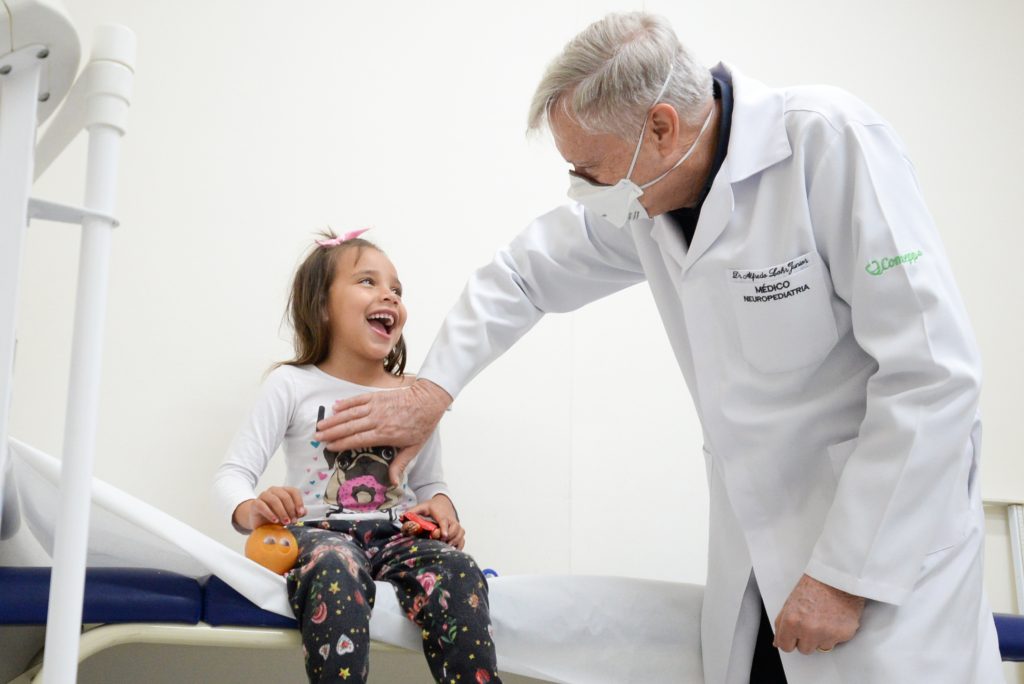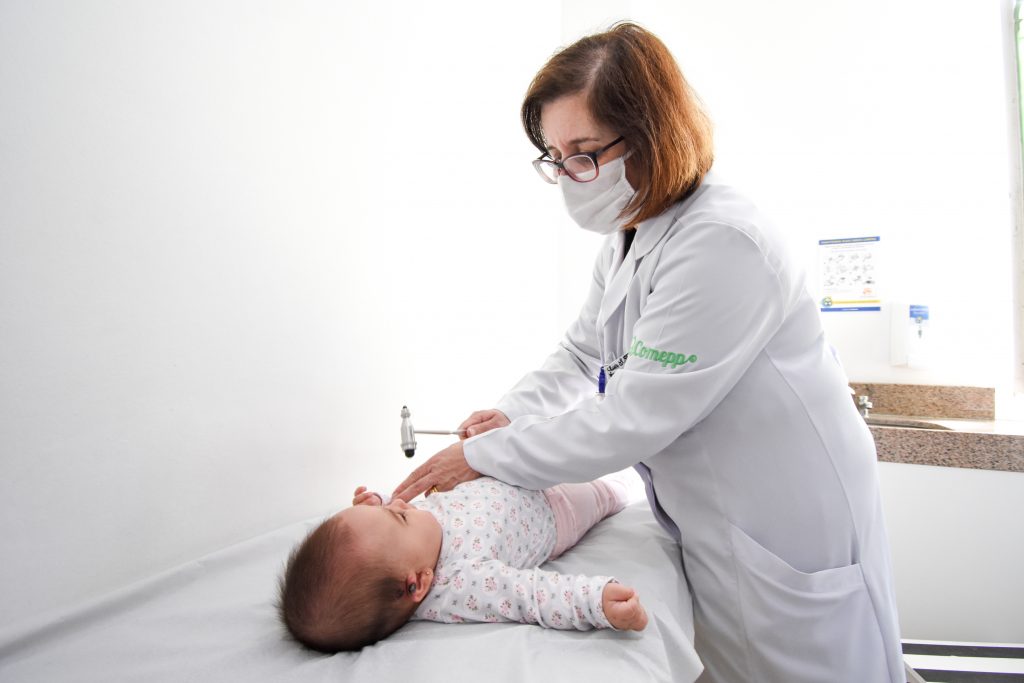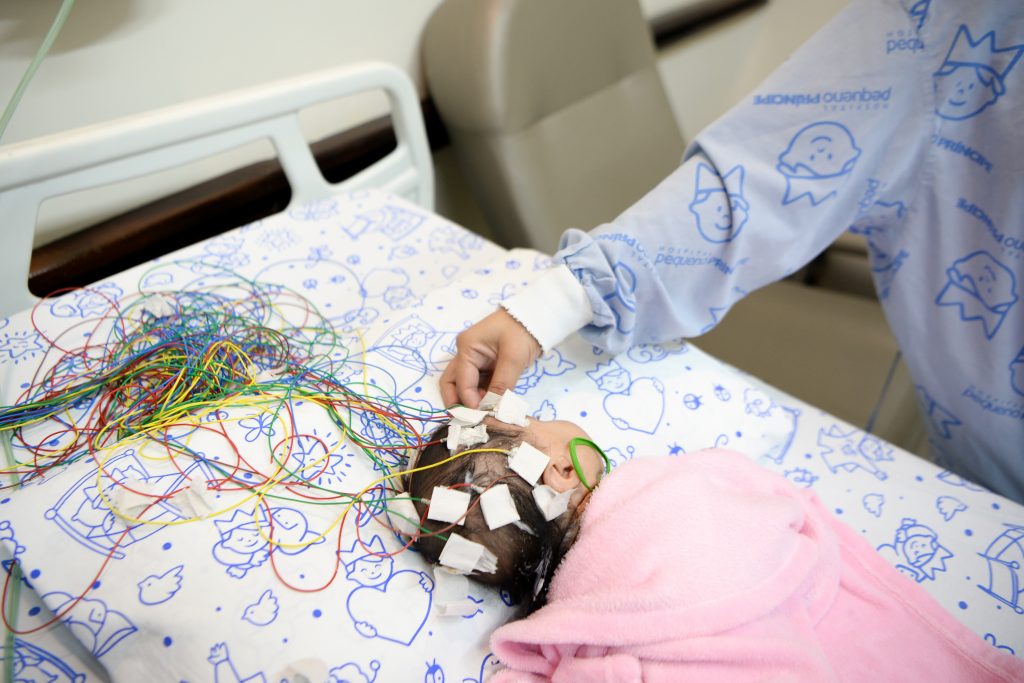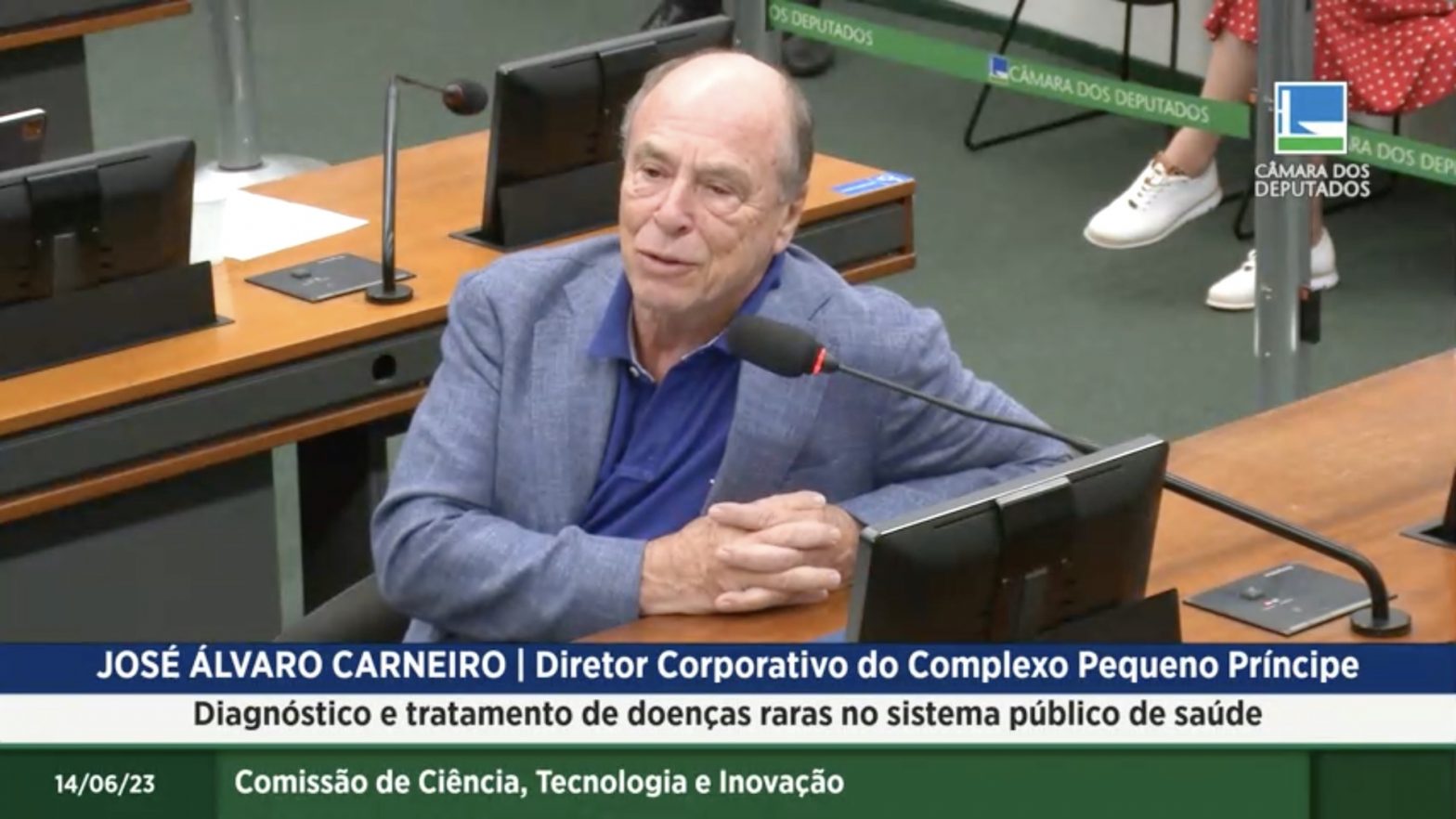Pequeno Príncipe Neurology Service completes 40 years
The institution has one of the most complete services in Brazil in the field of pediatrics
The Pequeno Príncipe Neurology Service started to operate in July 1983. Over these four decades, the specialty has been structured and expanded with the aim of promoting health with equity and in an integrated manner. The service was a pioneer in several treatments, especially aimed at rare neurological and neuromuscular diseases, and is considered one of the most complete in Brazil in the field of pediatrics. In 2022 alone, more than 5,000 children and adolescents were assisted, and were performed 2,884 electroencephalograms and 44 electroneuromyographies.

The founder and physician in charge of the service, neuropediatrician Alfredo Löhr Junior, recalls that when he arrived at the institution, the Neurosurgery Service already existed and an analog encephalogram equipment was used. Neurology was linked to neurosurgery for a few years, until it began to act as an independent outpatient clinic and ward.
Today, the Neurology Service has ten neurologists, trained in pediatrics and dedicated to the following subareas of neurology: epilepsy, movement disorders and cerebral palsy, rare neurological diseases (divided into muscular, mitochondrial, inborn errors of metabolism, degenerative and genetic), neurobehavioral disorders, and electroencephalogram. The team of neurologists works in an integrated manner with other medical specialties and multi-professional services to provide better quality of life for patients.
As the Hospital expanded and received more patients who required highly complex care, consequently, neurological complications increased, which require evaluation and continuous monitoring. “As a result, we noticed the growth and appreciation of the specialty as a whole. A neurology service demands a great attention from the family, since the diagnoses are mostly difficult and last for a lifetime. Therefore, it requires a lot time and care from the specialist doctor who monitors each case,” clarifies the neuropediatrician responsible for the Outpatient Clinic for Rare Neurological Diseases and preceptor of the Pediatric Neurology Residency, Mara Lucia Schmitz Ferreira Santos.

Medical Residency Program
With its commitment to disseminating knowledge and contributing to the training of professionals in the area of child and adolescent health, the institution implemented the Residency in Neurology Program. In the beginning, the program received a resident every two years. Today, there are four specialists per year. The Residency in Pediatric Neurology at Pequeno Príncipe Hospital is one of the most competitive selection processes in the country in this area.
The neuropediatrician Alfredo Löhr Junior also reinforces how the training of professionals was a great ally for the service to transform the lives of thousands of children and adolescents. “Thanks to all the doctors and other professionals, over these 40 years, the Neurology Service is one of the great services in Brazil, a reference center, mainly for children and adolescents with rare diseases. We managed to answer and solve all the questions that come to us. It is gratifying to see that many neuropediatricians who are with us today started here as residents,” he says.

Service differentials
Regarding the milestones of the specialty during the 40 years, the neuropediatrician Mara Lucia Schmitz Ferreira Santos highlights the new technologies that allowed even more assertive diagnoses through genetic tests, which especially impacted neurological, genetic, and rare diseases. “From the moment we were able to name the diseases, it was also possible to find new treatments. For example, enzyme replacement therapy and gene therapy,” she explains.
Advances in diagnostics have also allowed patients to survive. The Pequeno Príncipe Hospital was the first in Brazil to diagnose anti-NMDA receptor encephalitis (a serious disorder that causes behavioral changes, seizures, and movement disorders), which until then had no treatment and children were dying, but today they have the chance of a quality life. “Genetics arrived to answer many questions that, in the past, were left unanswered,” she concludes.
More
The Research Institute team is part of a national pediatric oncology research network
Mobilized by the Ministry of Science, Technology, and Innovation, the network will act to contribute to the increase in childhood cancer cure rates
Director of Pequeno Príncipe advocates more resources for the treatment of rare diseases
The breakthrough achieved by medicine from genomics can provide improvements in diagnosis and treatment, but costs are still a challenge
New equipment for cardiopulmonary bypass increases the safety of cardiac surgeries
State-of-the-art machines widely used in the United States and Europe were acquired by Pequeno Príncipe with funds donated by the State Government









